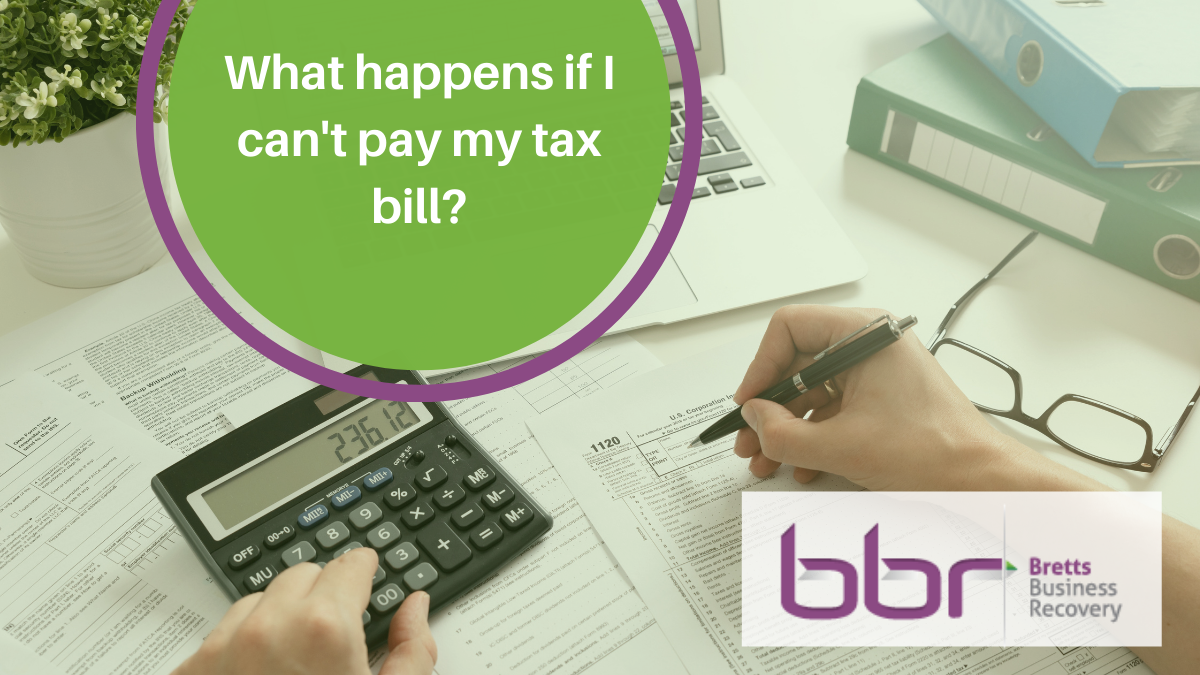What happens if I can’t pay my tax bill?

HMRC paused many of its debt collection activities during the COVID-19 pandemic and has been delivering support packages like the Coronavirus Job Retention Scheme and Self Employment Income Support Scheme. Now that these support measures have come to an end and debt collection work is restarting, what happens if you have tax liabilities that you are unable to pay – what are your options and the consequences of not paying?
The advice from HMRC states that they will try to find solutions for those people who get in touch with them to discuss their current situation and want to offer practical and workable support where possible, but those who ignore requests and do not contact them will be penalised. HMRC will always make contact with customers to try to resolve issues (alongside a warning against potential scams – to verify whether it’s a genuine approach, read more about HMRCs guidance here)
If you know you won’t be able to pay your tax or have fallen behind with payments there are a number of options available:
Time to Pay or Deferred Payments
You may be offered affordable repayment options such as a payment plan like Time to Pay, where you can pay what you owe in affordable and pre-agreed installments – HMRC reports that they have around half a million customers using Time to Pay arrangements at present, with more than 90% being completed successfully. Even if you are unable to pay anything straight away, you may be able to agree a Deferred payment, where you’ll have some time before you need to start paying.
Lending support for Business
You may also be offered support in the form of a Recovery Loan Scheme (the scheme initially ran until Dec 2021 and has now been extended until 2024) or an extension on repayment terms for support you already receive.
Debt Respite Scheme for Individuals
The Debt Respite Scheme is a new government scheme (available in England and Wales – Scotland has its own Debt Arrangement Scheme in place, and Northern Ireland is currently not included in this scheme) to help people who struggle to cope with the money owed (not just tax) to take control of their finances. HMRC is part of the Debt Respite Scheme , under which customers can apply to a debt adviser for breathing space where creditors stop all enforcement activity and all interest and late payment penalties stop.
What happens if you do not contact HMRC?
Where customers do not respond to any of the communications from HMRC this is taken as a refusal to co-operate /pay. From September 2021, where customers are unwilling to discuss a payment plan, or where a customer ignores attempts by the HMRC to contact them, they may find that the process of collecting the debt is started. HMRC will invoke powers which include taking control of goods, summary warrants and court action including insolvency proceedings.
HMRC will only consider collecting tax through insolvency proceedings where customers have been found to be fraudulent, deliberately non-compliant, or where they are continuing to accrue debt with no prospect of being able to settle their existing debts.
Our advice
Always respond to genuine requests from HMRC to discuss a payment plan and agree a way forward. We would also advise that you get in touch with us to discuss how you can both manage personal and business debts in both the short and long term. If you have tax and other personal credit card or unsecured loans that you are unable to repay then it may be that an Individual Voluntary Arrangement will help you take control of your finances. For more information, contact us using the form below.
Updated September 2022